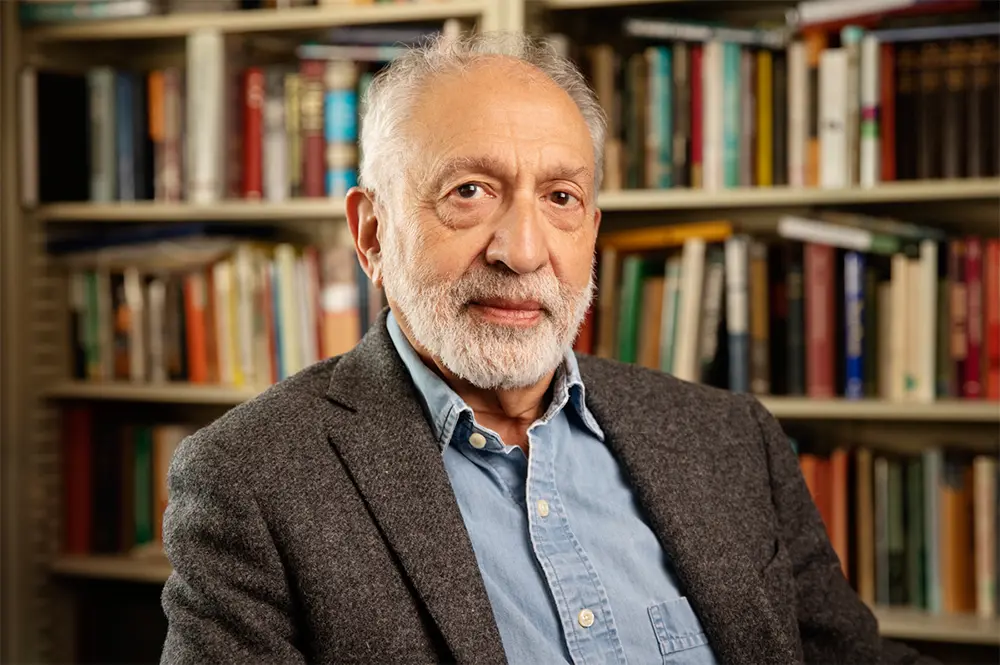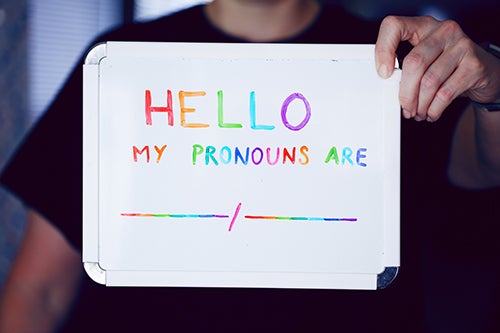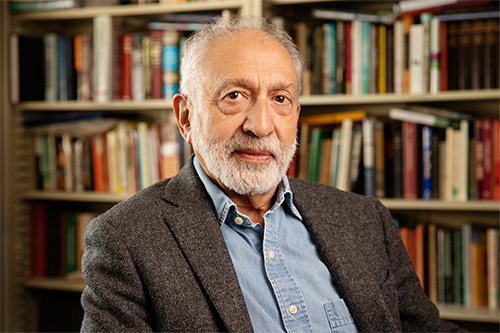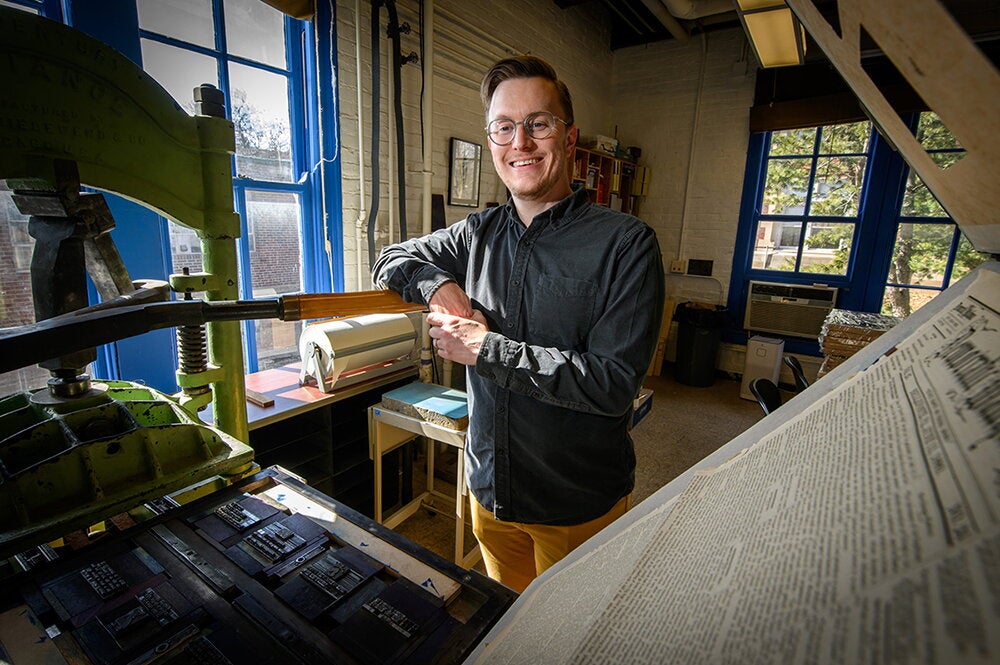
When did pronouns become a thing?
The use of a singular personal pronoun is not a modern concept. Over the years, various alternatives have emerged. Notably, the earliest recorded use of "they" as a gender-neutral personal pronoun dates back to the 14th century, found in a French poem titled William the Werewolf.
 In his just-released book “What’s Your Pronoun? Beyond He and She,” linguist Dennis Baron (he/him/his), a University of Illinois professor emeritus of English, writes about the history of pronoun use and the role pronouns have played in establishing our rights and identities.
In his just-released book “What’s Your Pronoun? Beyond He and She,” linguist Dennis Baron (he/him/his), a University of Illinois professor emeritus of English, writes about the history of pronoun use and the role pronouns have played in establishing our rights and identities.
The book has a mainly historical focus and puts the present interest in pronouns in historical perspective. While the masculine pronoun has long been used as a generic pronoun, it excludes women and many people don’t like it because it doesn’t agree with its antecedent noun in gender, Baron said.
“The debate has been reenergized in the last 15-20 years because of awareness of nonbinary gender issues and transgender and gender-nonconforming people,” he said.
“The pronoun is becoming like an honorific, like a title. This is how you refer to me,” Baron said. “It’s got this extra-special significance once again in the context of new gender issues. It’s not just women’s rights; now it’s trans rights and nonbinary rights. We see a revived interest in both coined pronouns and the singular ‘they.’”
Merriam-Webster chose “they” as its 2019 Word of the Year based on the number of dictionary lookups, and the singular “they” was added to its online dictionary in September.
Baron’s interest in pronouns began when he was researching language reform in the early 1980s. He came across a number of coined pronouns from the 19th and early 20th centuries, and he published an article about them in a linguistics journal. More recently, he started looking at digitized 19th-century newspapers online. His list now contains more than 200 coined pronouns.
The earliest example he found, from 1841, is “e,” with “em” for the object and “es” for the possessive. Others include “zie” or “hir,” the latter of which was used by The Sacramento Bee newspaper for 25 years, Baron said.
“It was a curiosity. Somebody coined pronouns because they felt a word was missing from English,” he said. “A few of the words made it into dictionaries. None of them ever achieved widespread use.
“One word that seems to be filling the gap is the singular ‘they,’” he said.

(Photo by L. Brian Stauffer.)
Some people object to using “they” as a singular pronoun, but Baron points out that “you” at one time was strictly a plural pronoun. It wasn’t accepted as singular until the 17th century.
Authors including Shakespeare often have used the singular “they.”
“Writers, if they want to conceal somebody’s gender or if gender is irrelevant, need to have a word, and the only word we have is ‘they,’” Baron said. “There are examples where writers use the singular ‘they’ to create suspense or to create comedy. There’s a place in ‘The Pickwick Papers’ where Dickens uses it to conceal gender for a page or so. Agatha Christie puts it in Hercule Poirot’s mouth: ‘I’m using the generic male, but the killer could be a woman.’ You see it all over the place as a literary device.”
The pronoun debate, particularly in the 19th century, involved legal as well as literary implications, Baron said. The courts and government debated whether the use of the generic “he” in law excluded women.
“Suffragists argued from the 1870s to the early 1900s that if ‘he’ is treated as generic in criminal law, then the voter ‘he’ should include women as well,” Baron said.
The courts at the time disagreed, although they continued to uphold “he” as including women when it came to obligations such as paying taxes or incurring civil or criminal penalties.
The topic of preferred pronouns continues to trigger controversy. When the University of Tennessee, Knoxville posted a guide to gender-neutral pronouns on its website, it enraged conservative politicians in the state, Baron said. But more language authorities, such as dictionaries and style guides, now are accepting the singular “they,” including The Associated Press and The Washington Post, he said.
“It’s OK to have variable pronoun usage. We don’t have to have a single paradigm,” Baron said. “At some point, gender nonconformity will be not so big a deal. People are becoming increasingly accepting of it, and possibly the pronoun issue will fade into the background because people won’t feel the need to politicize the pronoun.”
The singular “they” is used all the time in speech, he said. “It’s such an ingrained part of the language, people don’t even notice it.
“Language is variable, and we tailor our language to context and situation.”
Learn more at the University of Illinois
Interested in learning more about the history of pronouns and the meaning they hold today? Study English at the University of Illinois!


